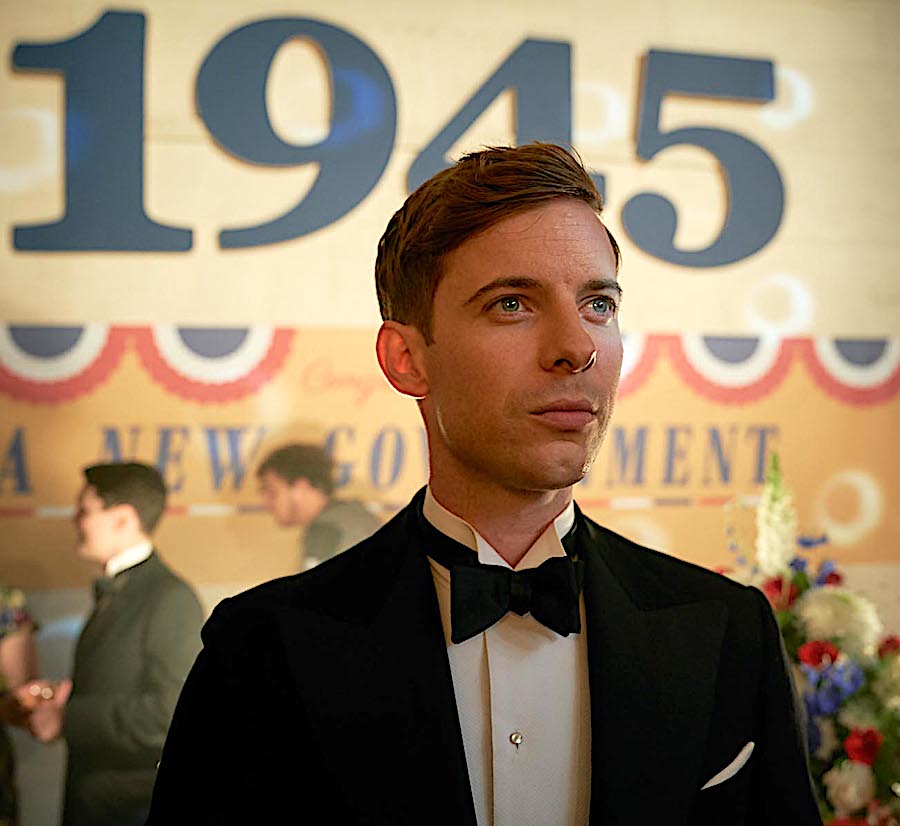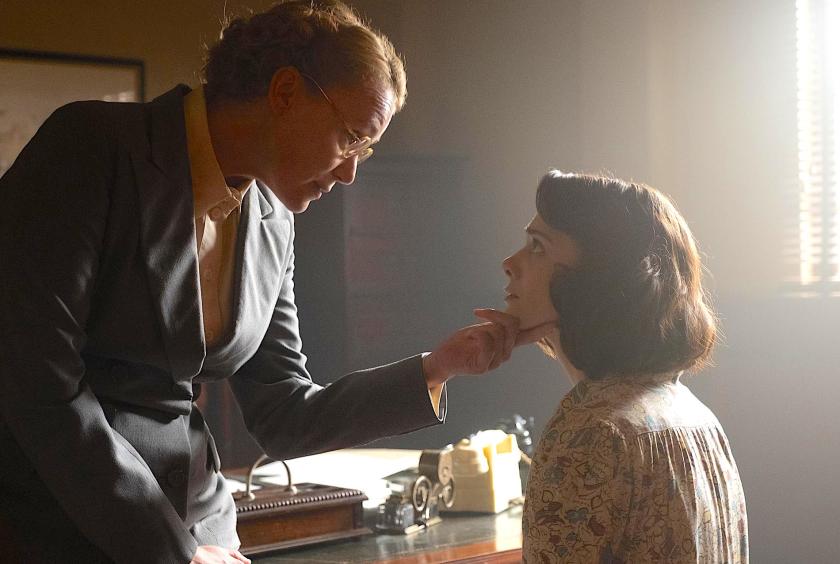It’s 1945 and World War Two is nearly over. Somewhere in England, Fiona Symonds (“Feef” to her friends) is training to be a spy and be dropped behind enemy lines. Her training involves such amusements as being woken in the night by having a bucket of water chucked over her, then being interrogated by two fake German officers.
But the end of the war in Europe brings Feef’s dreams of covert derring-do to a sudden halt. Wrapped in the arms of her American lover Peter McCormick (Matt Lauria), she wistfully laments that she now won’t be able to parachute into Germany and blow up bridges. Perhaps her handlers omitted to mention that a vast percentage of British agents ended up betrayed, captured, tortured and shot.
 However, the end of one war elides smoothly into a new one, the Cold War, though according to this version at least (Traitors is written by playwright Bash Doran), the British were slow to appreciate the dangers. It takes another American, a man known only as Rowe (Michael Stuhlbarg) who works for the Yanks’ OSS intelligence service, to point out that the British are feeble, politically, economically and psychologically. Stalin is targeting Britain, which hasn’t yet woken up to the infiltration of Communist agents into the heart of government.
However, the end of one war elides smoothly into a new one, the Cold War, though according to this version at least (Traitors is written by playwright Bash Doran), the British were slow to appreciate the dangers. It takes another American, a man known only as Rowe (Michael Stuhlbarg) who works for the Yanks’ OSS intelligence service, to point out that the British are feeble, politically, economically and psychologically. Stalin is targeting Britain, which hasn’t yet woken up to the infiltration of Communist agents into the heart of government.
Doran, a British writer who’s been working for years in the States, evidently saw this momentous historical moment as an opportunity to probe various aspects of the nature of Britishness, with its class divide, post-war identity crisis and political upheavals. Any vague echoes of Brexit are obviously deliberate. The ejection of Winston Churchill and the election of Attlee’s Labour government was a central event in this first episode, with Feef, from a solidly Conservative family, sparring briskly with Hugh Fenton (Luke Treadaway, pictured above), a newly-elected young Labour MP. There was nothing nuanced about any of this, though. Feef’s father St John Symonds (Owen Teale) is a weary pastiche of a harrumphing Sir Bufton Tufton from the Tory shires, waiting to take his seat in the Lords, while Fenton loves delivering self-righteous set-pieces about Tory crimes against the working classes.
 Luckily the Americans are here to upset the apple cart. President Truman has given the order for the OSS agents to pack their bags and come home, but Rowe think he’s making a big mistake. He sees major potential in Feef, who has has landed herself a job with the housing department of the Civil Service, having convinced her interviewer Priscilla Garrick (Keeley Hawes) that she, as a Conservative, would have no problems working with a Labour government. “We are neutral,” declares Priscilla, primly (how times have changed). Rowe thinks Feef can be his perfect Commie-spotting mole in the innards of the British establishment (watch out, Guy Burgess).
Luckily the Americans are here to upset the apple cart. President Truman has given the order for the OSS agents to pack their bags and come home, but Rowe think he’s making a big mistake. He sees major potential in Feef, who has has landed herself a job with the housing department of the Civil Service, having convinced her interviewer Priscilla Garrick (Keeley Hawes) that she, as a Conservative, would have no problems working with a Labour government. “We are neutral,” declares Priscilla, primly (how times have changed). Rowe thinks Feef can be his perfect Commie-spotting mole in the innards of the British establishment (watch out, Guy Burgess).
We shall see. It may be an idea pregnant with possibilities, but this first instalment felt clunky and undercooked. Emma Appleton as Feef is brittle and not very interesting, and even the usually excellent Stuhlbarg (pictured above left) is struggling to wring much convincing life out of his character (though he’s undoubtedly cold-bloodedly ruthless). In its own more human and less schematic way, Foyle’s War did a much better job of covering similar territory.















Add comment